Archive
18 April 2023
Nature publication on loops, flags and tension in DNA
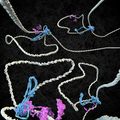
Two protein complexes carry the major responsibility for the spatial organisation of chromosomes in our cell nuclei. DNA tension plays a surprising role in this. Together with Austrian colleagues, nanoscientist Cees Dekker and his PhD candidate Roman Barth of the Kavli Institute of Nanoscience at TU Delft now publish how they have visualised this in detail in Nature on April 19.
14 April 2023
TU Delft researchers shed new light on the motor of DNA replication
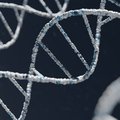
DNA replication is the process whereby cells make an exact copy of their DNA before cell division. A key part of the intricate DNA replication machinery is a molecular motor called CMG, which has the vital task of separating the two strands of the DNA double helix so that they can be copied. An interdisciplinary team of researchers from TU Delft has now developed a new methodology to assemble and image the motion of CMG with unprecedented resolution.
13 April 2023
100th waste treatment plant using TU Delft's Nereda technology built in Florida
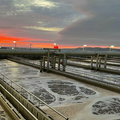
Twenty-five years after the birth of the award-winning Nereda® technology in TU Delft's Mark van Loosdrecht's lab, the 100th Nereda® waste treatment plant is now nearing completion. These plants can now be found all over the world, from Brazil to Sweden and from South Africa to the United States.
06 April 2023
Shedding light on battery materials
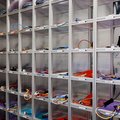
Understanding why certain materials work better than others when it comes to storing energy is a crucial step towards developing the batteries that will power electronic gadgets, electric vehicles and renewable power grids. Researchers at Drexel University and Delft University of Technology have developed a new technique that can track the electrolytes inside energy storage mechanisms quicky and precisely.
27 March 2023
Delft University Fund launches new campaign: Tech for Impact

How can we make physical jobs more attractive? Can we speed up research on dementia? Can we make our campus an example of sustainability? And will ambitious students succeed in making seaweed aquaculture more sustainable? These four questions are at the heart of the new campaign of Delft University Fund: Tech for Impact 2023.
24 March 2023
Tiniest detail of materials revealed by renewed ROG Neutron Reflectometer
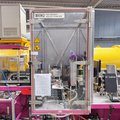
Today the ‘new’ ROG neutron reflectometer at the TU Delft Reactor Institute has officially been opened. The instrument shows the structure and composition of thin layers and interfaces of materials. The opening is an important step for scientists working on improving performance and sustainability for a wide range of products.
24 March 2023
Information market 22 April 2023: 60 years of research and education with the reactor
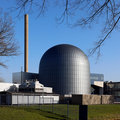
The dome of the research reactor on TU Delft Campus is a familiar sight to many. This year marks 60 years since the reactor was commissioned. But, who knows how and what this reactor is used for?
22 March 2023
New microchip links two Nobel Prize-winning techniques

Physicists at Delft University of Technology have built a new technology on a microchip by combining two Nobel Prize-winning techniques for the first time. This microchip could measure distances in materials at high precision, for example underwater or for medical imaging. The instrument could lead to new techniques to monitor the Earth’s climate and human health. The work is now published in Nature Communications.
22 March 2023
The Protein Transition: unchaining a revolution

With pioneering patents, leading start-ups, strong scientific research and the presence of industrial giants like DSM, the Netherlands has everything it needs to lead a revolution in the field of meat substitutes and cultured meat. Unfortunately, the legislation relating to these products is slowing things down and promising start-ups are moving abroad. Is our country at risk of falling behind?
15 March 2023
Stan Brouns appointed as professor

The Executive Board has appointed Stan Brouns as full professor of Molecular Microbiology at the department of Bionanoscience as of 7 February 2023. His work focuses on how microbes defend themselves from viruses. Brouns: “Bacteria have had a few billion years of evolution to come up with all sorts of clever ways to defend themselves from viruses. We aim to uncover what they have evolved over all this time.”